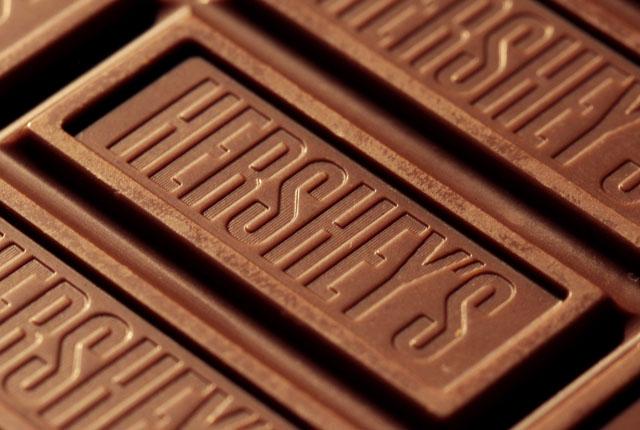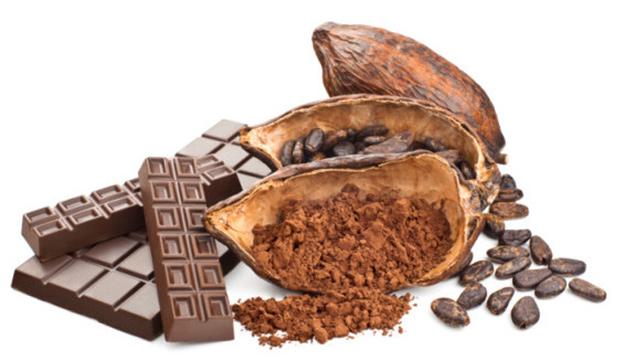You are here
Chocolate prices are set to rise
By AP - Oct 30,2014 - Last updated at Oct 30,2014

NEW YORK — The cost of ingredients in chocolate bars is rising, and the nation's biggest candy makers have already warned of price hikes next year.
And it's not just costs that are pushing up prices. A growing sweet tooth around the world means more demand for chocolate.
Here are the global trends putting pressure on the confection:
Pricier ingredients
Hershey and Mars, which together account for about two-thirds of US chocolate sales, are hiking prices. Hershey cited the rising cost of cocoa, dairy and nuts when it announced an 8 per cent increase in the average wholesale price of its candy this summer.
Those higher costs weighed on the chocolate maker's most recent earnings, which fell 4 per cent.
Hershey Chief Executive Officer John Bilbrey, said in an interview with CNBC earlier this month that shoppers wouldn't see a price increase this year because his company negotiated prices for its holiday items well in advance.
However, consumers would notice an impact next year.
Mars, a privately-held company, said this summer that its prices would rise by about 7 per cent because of a need to support its marketing spending and "manufacturing capabilities".
The company said that it last increased prices in 2011.
Global sweet tooth
People in the developing economies of Asia and Latin America are acquiring a taste for chocolate. While North America and Western Europe still account for more than half of global chocolate sales, demand is growing faster in emerging markets.
That's raising concerns that demand for cocoa beans, the key ingredient in chocolate bars, will outstrip supply.
Chocolate sales in Asia are forecast to grow by 23 per cent over the next five years and by almost 31 per cent in Latin America, according to London-based research firm Euromonitor International.
That compares with growth of 8.3 per cent in North America and 4.7 per cent in Western Europe over the same period.
Those forecasts helped push the price of cocoa beans as high as $3,371 a tonne in September, the highest level since March 2011.
The price has since fallen back to $2,923 a tonne, but it is still 23 per cent higher than it was two years ago.
Supply problems
West Africa is the world's biggest cocoa producing region and accounts for about two-thirds of the global crop.
Unlike large, modern farms in the US and other developed economies, about 80 to 90 per cent of the world's cocoa crop comes from small, family-run operations, according to the World Cocoa Foundation (WCF), a trade organisation.
The small-scale production makes it more challenging to introduce modern farming techniques that boost productivity from season-to-season to faster match demand.
The WCF, which is backed by companies including Mars and Hershey, is sponsoring farmer training to encourage more efficient use of water resources and better soil management to improve crop yields.
West Africa is also at the centre of the Ebola outbreak. But concerns that cocoa production would be hampered by the virus' spread have proven overblown, so far.
The Ivory Coast, which produces about 40 per cent of the world's cocoa crop, has yet to register a single case of Ebola, despite sharing a western border with Liberia and Guinea, two of the nations at the centre of the epidemic.
Food hikes
Chocolate-covered bacon, anyone? It might be a hit to more than just your waistline. Bacon prices have climbed 7 per cent this year after a fatal virus swept through the nation's pig herds.
Coffee prices jumped after a drought in Brazil damaged the crop. Milk prices have also risen.
The retail price of chocolate has climbed to an average of $5.93 a pound in 2014 from $4.92 five years ago, according to estimates from the National Confectioners Association, an industry group that represents candy and chocolate makers.
In total, Americans will spend about $1.5 billion this Halloween filling bowls with chocolate, according to the NCA. That makes the last day of October the industry's most important holiday for sales — ahead of Easter, Christmas and even Valentine's Day.
The timing of Halloween could make this week a big treat for candy companies.
"We're optimistic on Halloween because it falls on a Friday this year," said Larry Wilson, vice president for customer relations at the NCA. People "will celebrate it later into the night, and they'll celebrate it all weekend".
For consumers, that party will cost a little more next year.
Related Articles
LONDON/NEW YORK — Candy bars have shrunk and economic growth in Asia has slowed, meaning people are eating less chocolate and its key ingred
Deep in the Mekong Delta, two Frenchmen have their heads buried in a sack of cacao beans. The pair — co-founders of Vietnam’s first artisan chocolate maker — resurface, murmuring appreciatively.
NEW YORK/MEDICILINDIA, Brazil — For years, Valdomiro Facchi has made a living ranching on land carved from the Amazon rainforest.














